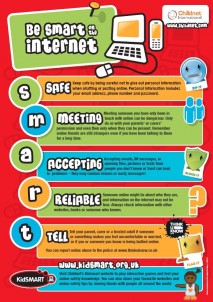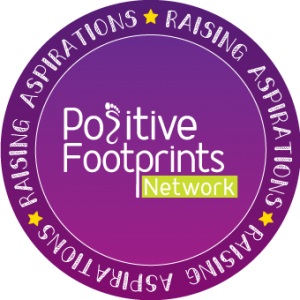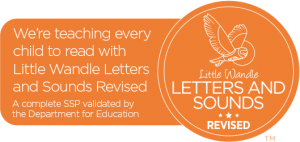Internet Safety
Welcome to our Internet Safety page for children.
At Starbeck School we believe that e-safety is very important. At school you will learn about various ways of keeping safe on-line through assemblies, ICT/Computing lessons, PSHE lessons, Police visits, trips to 'Crucial Crew' and in various other ways.
Some key rules to follow our the SMART rules developed by Childnet International.
Safe:Keep safe by being careful not to give out personal information when you’re chatting or posting online. Personal information includes your email address, phone number and password |
Meet:Meeting someone you have only been in touch with online can be dangerous. Only do so with your parents’ or carers’ permission and even then only when they can be present. Remember online friends are still strangers even if you have been talking to them for a long time. |
Accepting:Accepting emails, IM messages, or opening files, images or texts from people you don’t know or trust can lead to problems – they may contain viruses or nasty messages! |
Reliable:Someone online might lie about who they are and information on the internet may not be true. Always check information by looking at other websites, in books, or with someone who knows. If you like chatting online it’s best to only chat to your real world friends and family. |
Tell:Tell a parent, carer or a trusted adult if someone, or something, makes you feel uncomfortable or worried, or if you or someone you know is being bullied online |
| KEY STAGE 2 LINKS |
|---|
| Visit the "Think You Know' website for 8-10 yrs |
| Watch the videos for 'The adventures of Kara, Winston and the Smart Crew' to learn the SMART rules |
Top Tips for children about Location Sharing:
- Only share your location with people you know in person. Never share your location with strangers.
- Don’t add contacts to Snapchat if you don’t know them in person.
- Regularly review your settings and take an active decision about whether you want people to know your location.
|
10 TOP TIPS: Staying Safe Online |
|---|
|
|
10 TOP TIPS: for mobile phone safety |
|---|
|







